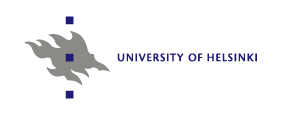- FIN-CLARIAH Research Infrastructure
A new national research infrastructure initiative FIN-CLARIAH for...
8.12.2021 8:12 by eahyvone - WarMemoirSampo published on December 3, 2021
A new “Sampo” application, “WarMemoirSampo”...
8.12.2021 8:04 by eahyvone - Five new SeCo papers accepted for the ISWC 2021
The 20th International Semantic Web Conference (ISWC 2021), the...
2.8.2021 6:53 by eahyvone
- Annastiina Ahola, Lilli Peura, Rafael Leal, Heikki Rantala and Eero Hyvönen: Using generative AI and LLMs to enrich art collection metadata for searching, browsing, and studying art history in Digital Humanities
- Eero Hyvönen, Petri Leskinen, Alexandre Lionnet, Blandine Blukacz-Louisfert, Pierre-Etienne Bourneuf, Davide Rodogno, Grégoire Mallard, and Florian Cafiero: Linked Open Data Approach to Study the Assembly Minutes of International Organizations and Their Underlying Prosopography in the Real World Context
- Eero Hyvönen, Petri Leskinen, Alexandre Lionnet, Blandine Blukacz-Louisfert, Pierre-Etienne Bourneuf, Davide Rodogno, Grégoire Mallard, and Florian Cafiero: A Linked Open Data Infrastructure for Studying Historical Activities of International Organizations: First Results on the League of Nations (1920-1946)
- Petri Leskinen, Eero Hyvönen, Alexandre Lionnet, Blandine Blukacz-Louisfert, Pierre-Etienne Bourneuf, Davide Rodogno, Grégoire Mallard, and Florian Cafiero: A Linked Open Data Service and Semantic Portal to Study the Assembly Minutes and Prosopography of the League of Nations (1920–1946)
Vera - Validation and quality assistant for Semantic Web data
Page updated: 11.9.2008
Vera is a generic, browser-based quality checker tool for any RDF data. By quality, we refer to data integrity such as internal linkage, and validity, where the data contents is matched against a closed set of RDF statements in a user defined file written in RDFS and OWL.
The implementation makes use of the general specifications for the standard languages and vocabularies such as RDF, RDFS, OWL, SKOS, DC and FOAF. Also, users can define domain ontologies (eg. MeSH, WordNet) which can be harnessed as trusted resources in the process. The picture below illustrates the relations between different input sources.
The output that Vera produces is not a list of errors per se, but rather a list of possible problems that an expert user can assess and modify the schema or data as needed. The report also contains general statistics about the data, such as language definition usage, so it can also be used for general analysis instead of validation.
This ongoing work is a part of the Semantic Web 2.0 project (FinnONTO 2.0), funded mainly by the National Technology and Innovation Agency (Tekes) and a consortium of 38 private, public and non-governmental organizations.

Diagram of the validation process

Part of an example report generated by Vera
Design: Olli Alm
Design, Development & Implementation: Joonas Laitio
Contact:
Olli Alm
olli.alm [at] tkk.fi
Prof. Eero Hyvönen
Helsinki University of Technology, Laboratory of Media Technology and University of Helsinki
eero.hyvonen [at] tkk.fi


